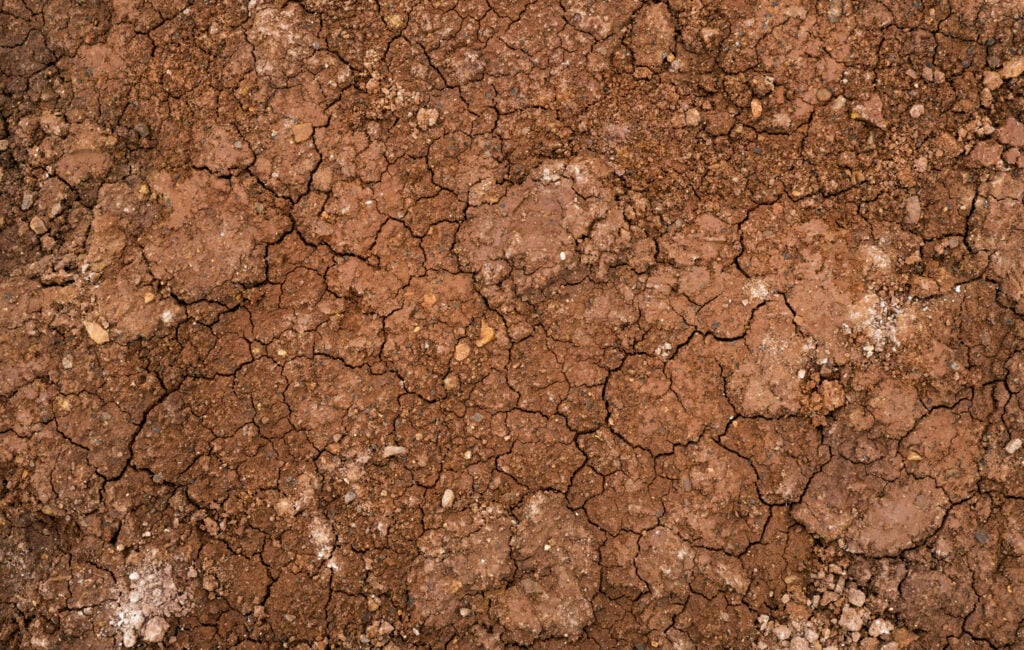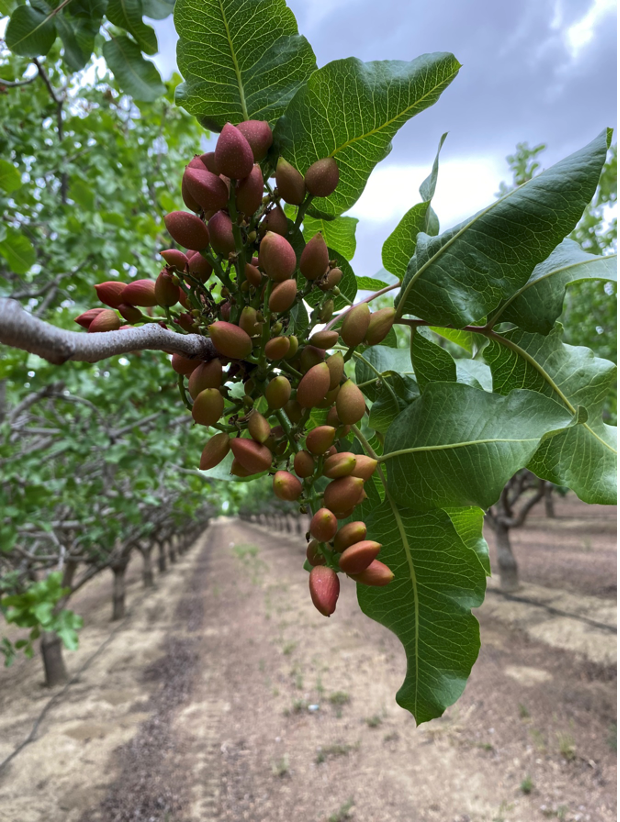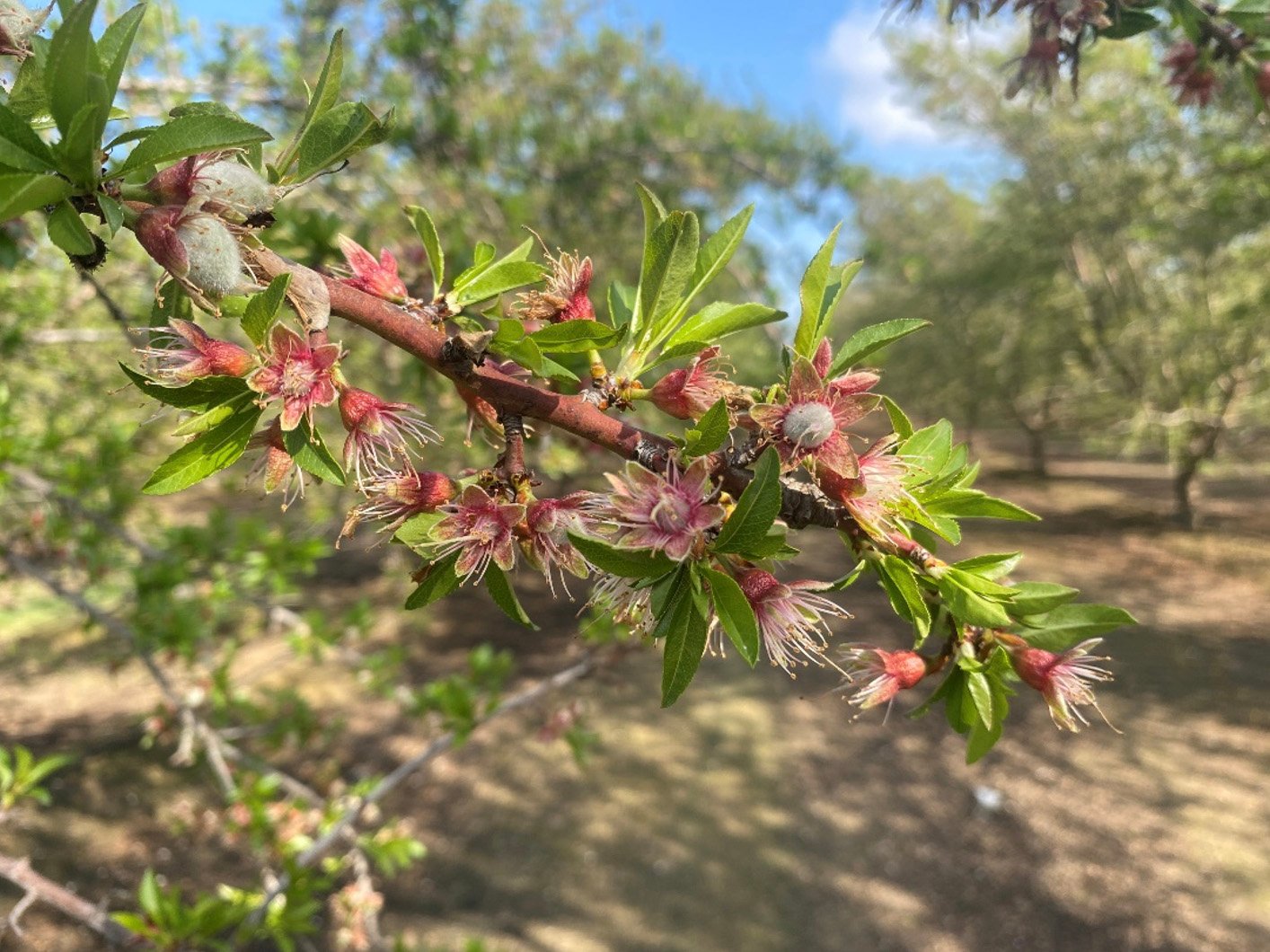
Why are your soils cracking?
Commonly heavy clay soils develop cracks in the dry season as the soil profile dries out. The cracking is simply a matter of expansion and contraction. The clay portions of soils are made up of very fine particles of silicate minerals. These silicate minerals are in the form of thin sheets that stack on top of each other. When soils hydrate water works its way between those sheets and causes them to expand.
As water is pulled from the soil and the soil dries out, the silicate sheets collapse back onto each other and cause the soil to shrink. The soil cracks because the bonds that holds the silicate particles together are not strong enough to maintain that expanded structure. When the soil hydrates again, the water works its way back between those silicate particles expanding the soil structure and closing the cracks.
What is the significance of this process in relation to your crops?
The answer here is fairly simple. Your soil is dry! There may be some benefits to cracking soil, including establishing drainage channels in those heavy clay soils, allowing pathways for air to move down deep into the soil profile, and providing a way for loose organic matter on the surface to be incorporated into the soil. Those benefits are relatively insignificant when compared to the negative impact shrink swell clays can have on your crop.
If your soil is cracked, there is greatly reduced crop-available water in that zone. The physical movement of the soil cracking also breaks and exposes the small feeder roots, which reduces the overall ability of the plant to absorb water and nutrients. Cracking soils can cause difficulties with preferential flow. Water will travel to the area with the least resistance, in this instance, you can find the water flowing down the cracks. This results in water getting pushed past the root zone and becoming unavailable to the plant.
It is important that growers avoid filling the cracks with excess soil as a way to alleviate the problem. This will instead create more pressure in the soil when the profile is rehydrated and can have negative effects on roots expansion. Compost amendments can aid in reducing cracking by decreasing the amount of clay particles sticking together and by allowing for more water retention to keep the soil from drying out.
The goal in agriculture is to maximize the genetic potential of the plant by way of yield and quality. When soils are allowed to dry to the point of cracking, localized drought stress is occurring. The severity of stress depends on the depth, spread, and duration of cracking. The longer the soil remains in that state the greater the effect on quality and yield. An additional concern is that when severe cracking occurs, it can be very difficult to refill the soil profile. A large volume of water is necessary to rehydrate the soil and close the cracks. Some intense management is required to apply enough water to rehydrate the soil without causing over-saturation in parts of the soil profile, which can exacerbate problems in the root system.
The goal in irrigation management should be to maintain the soil in a range that allows your crop to freely access water and nutrients and a cracking soil is an indication that you are no longer in that range. Some growers may find it useful to apply short burst irrigations to keep the top profile from becoming cracked.







